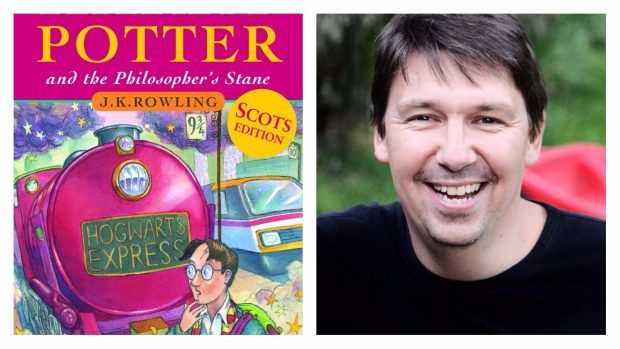Matthew Fitt has already translated books by renowned authors Roald Dahl and Robert Louis Stevenson into Scots.
But the north-east author and poet admitted yesterday that the challenge of converting Harry Potter and the Philosopher’s Stone into his native tongue had been one of the biggest challenges of his life.
The book, which was famously created by JK Rowling, had already been translated across the world into 79 different languages.
Now there is an 80th, which will be released next week by Black & White Publishing, recounting the original adventures of the famous Hogwarts wizard.
Mr Fitt, who has striven to promote Scots, Doric and other variations of the distinctive language, has spent months working on the project, carefully transforming Rowling’s world of magic without intruding on the plot.
The work begins: “Mr and Mrs Dursley, o nummer fower, Privet Loan, were prood tae say that they were gey normal, thank ye verra much.
“They were the lest fowk ye wid jalouse wid be taigled up wi onythin unco or weird, because they jist didnae haud with havers like yon.”
Harry Potter’s name hasn’t been changed. Nor has Hogwarts. But other features have been altered in this re-imagining.
Mr Fitt said: “It was important to be careful with this, because this is one of, if not the most famous children’s books on the planet, and there has been an incredible amount of interest in the project.
“The four houses at Hogwarts are Gryffindor, Hechlepech, Corbieclook and Slydderin. Hagrid is still Hagrid and it’s the same with Ron Weasley.
“But some other things have changed, including the name of (the school sport) Quidditch. This basically involves a broom and a ball, so I’ve called it Bizzumbaw.
“It’s a book I have always wanted to translate, but it is definitely a task you have to take seriously. These books, characters and films are known all over the world. I just hope others feel I have done it right.”
His hope is the new version helps inspire a greater number of young Scots to invest in their own language. As he said: “I know there are people across the north-east, including Aberdeenshire Council, who want to develop Doric and encourage Scots and there’s lots of enthusiasm for it among children. If this book helps in that objective, that will be terrific.”
